3-Day Family Sightseeing and Shopping Adventure in Edinburgh
Edinburgh, Scotland
3 days


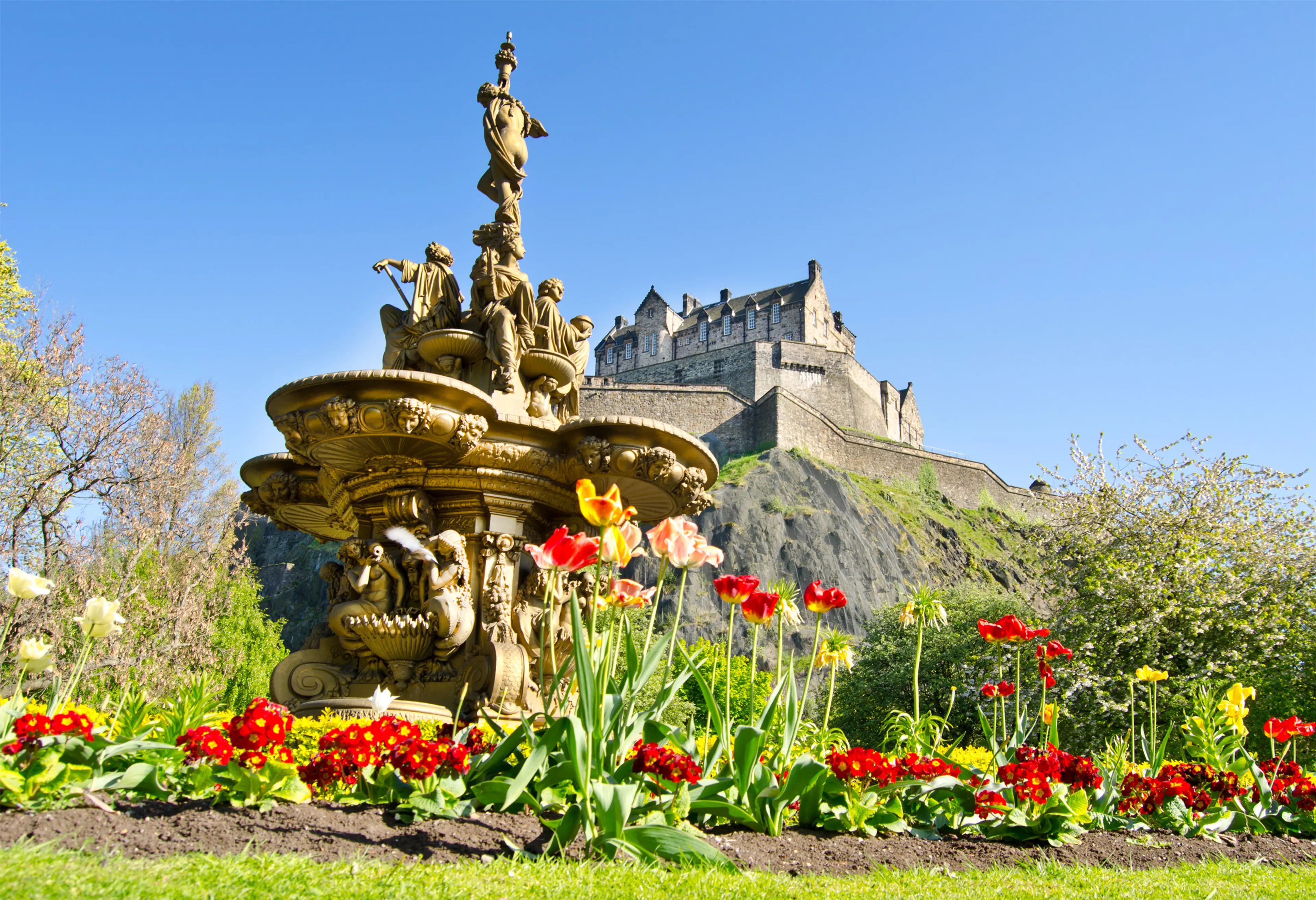
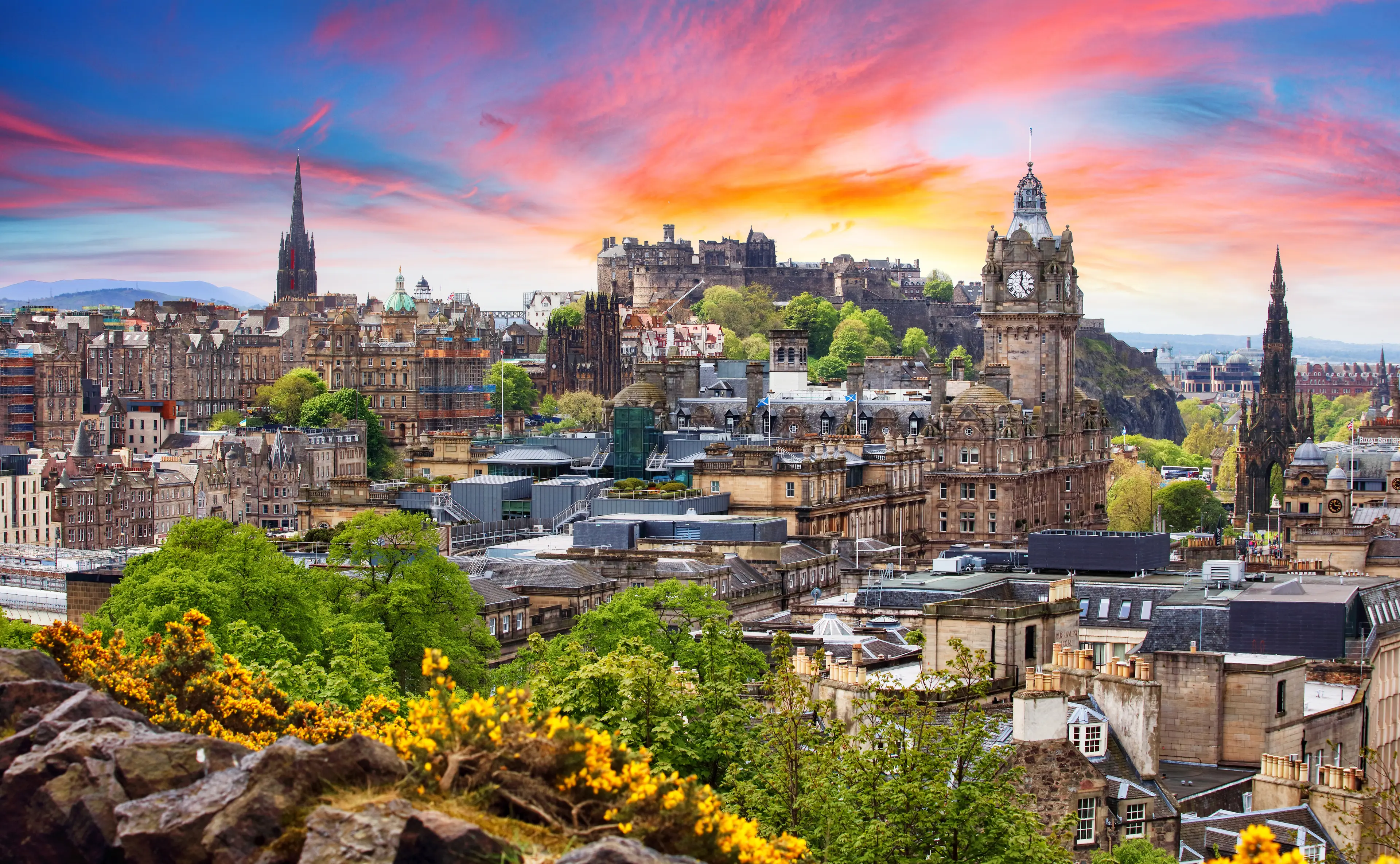

About Edinburgh, Scotland
Immerse yourself in the rich history and stunning landscapes of Edinburgh, Scotland's captivating capital. Explore the medieval Old Town and the elegant Georgian New Town, both UNESCO World Heritage Sites. Visit the iconic Edinburgh Castle, perched atop an ancient volcano, and stroll down the historic Royal Mile. Discover the city's literary heritage at the Writers' Museum or through the famous Harry Potter sites. Enjoy breathtaking views from Arthur's Seat, an ancient volcano and hill located in Holyrood Park. Indulge in traditional Scottish cuisine and world-class whisky. Experience the world's largest arts festival, the Edinburgh Festival Fringe, if visiting in August. Edinburgh, a city of culture, history, and beauty, promises an unforgettable journey.
3-Day Itinerary
Day 2
Discovering the New Town and Cultural Experiences
Morning
Begin your second day with a visit to the Museum of Edinburgh. Discover the city's history, from its earliest days to the present.
Lunch
Have lunch in a charming café. Enjoy a light meal and take a break before continuing your exploration of the city.
Afternoon
Spend the afternoon exploring the beautiful Princes Street Gardens. Take a leisurely walk, enjoy the beautiful flowers, and let the kids play in the playground.
Dinner
Enjoy a hearty dinner in a restaurant known for its friendly atmosphere and delicious food. Try some traditional Scottish dishes or choose from a variety of international options.
Evening
End your day with a visit to a Theatre. Watch a family-friendly show and enjoy the vibrant performing arts scene in Edinburgh.
Day 3
Enjoying Nature and Shopping in the New Town
Morning
Start your third day with a visit to the Royal Botanic Garden. Explore the beautiful gardens, enjoy the peaceful atmosphere, and learn about different plant species.
Lunch
Have lunch in a restaurant offering a variety of healthy and delicious options. Enjoy the relaxed atmosphere and take a break before continuing your exploration of the city.
Afternoon
Spend the afternoon exploring the historic New Town. Visit the Georgian House, stroll along the charming streets, and do some shopping in the boutique stores.
Dinner
Enjoy your last dinner in Edinburgh in a restaurant offering a variety of cuisines. Celebrate the end of your trip with a delicious meal.
Evening
End your trip with a visit to the iconic Arthur's Seat. Take a leisurely walk to the top and enjoy the stunning views of the city.
Attractions in Itinerary (9)

1Edinburgh Castle
A historic fortress dominating the skyline of Edinburgh, home to the Honours of Scotland and the Stone of Destiny.

2Royal Mile
A historic street stretching from Edinburgh Castle to Holyrood Palace, lined with shops, restaurants, and historic sites.

3Ghost tour
A guided tour exploring the city's haunted history, visiting sites such as Greyfriars Kirkyard and the South Bridge Vaults.

4Museum of Edinburgh
The Museum of Edinburgh, housed in a series of 16th and 17th century buildings, is the city's treasury. It is home to a vast collection of objects of historical and cultural significance to Edinburgh.

5Princes Street Gardens
Princes Street Gardens is a public park in the centre of Edinburgh, in the shadow of Edinburgh Castle. It offers a tranquil green space for relaxation, with beautiful floral displays, monuments, and a popular play area.

6Theatre
Edinburgh is renowned for its vibrant theatre scene, with a range of venues hosting everything from big-budget musicals to experimental drama. The city's theatres are particularly busy during the annual Edinburgh Festival in August.

7Royal Botanic Garden
A scientific centre for the study of plants, their diversity and conservation, as well as a popular tourist attraction.

8Georgian House
The Georgian House is a beautifully restored 18th century townhouse in Edinburgh's New Town. It offers a fascinating insight into life in Georgian times, with period furnishings, fine art, and a restored kitchen and servants' quarters.

9Arthur's Seat
An ancient volcano and hill located in Holyrood Park, offering panoramic views of the city.
Local Food and Drinks (12)

Haggis
Haggis is a savoury pudding containing sheep's pluck (heart, liver, and lungs); minced with onion, oatmeal, suet, spices, and salt, mixed with stock. It is traditionally encased in the animal's stomach and has a strong connection to Scottish culture.

Scotch Pie
Scotch Pie is a small, double-crust meat pie filled with minced mutton or other meat. It's a staple in Scottish bakeries and is often eaten at room temperature, making it a popular choice for picnics or quick meals.

Black Pudding
Black Pudding is a type of blood sausage commonly eaten in Scotland. It is made from pork blood, with pork fat or beef suet, and a cereal, usually oatmeal, oat groats or barley groats.

Cullen Skink
Cullen Skink is a thick Scottish soup made of smoked haddock, potatoes and onions. This hearty dish is a local speciality, particularly in the town of Cullen, from which it gets its name.

Cranachan
Cranachan is a traditional Scottish dessert. It's a layered concoction of whipped cream, whisky, honey, fresh raspberries, and toasted oatmeal soaked overnight in a little bit of whisky.

Tablet
Tablet is a medium-hard, sugary confection from Scotland. It has a brittle, grainy texture, a fudge-like taste and is often flavoured with vanilla or whisky.

Scotch Broth
Scotch Broth is a filling soup, originating in Scotland but now obtainable worldwide. The principal ingredients are usually barley, stewing or braising cuts of lamb, mutton or beef, root vegetables, and dried pulses.
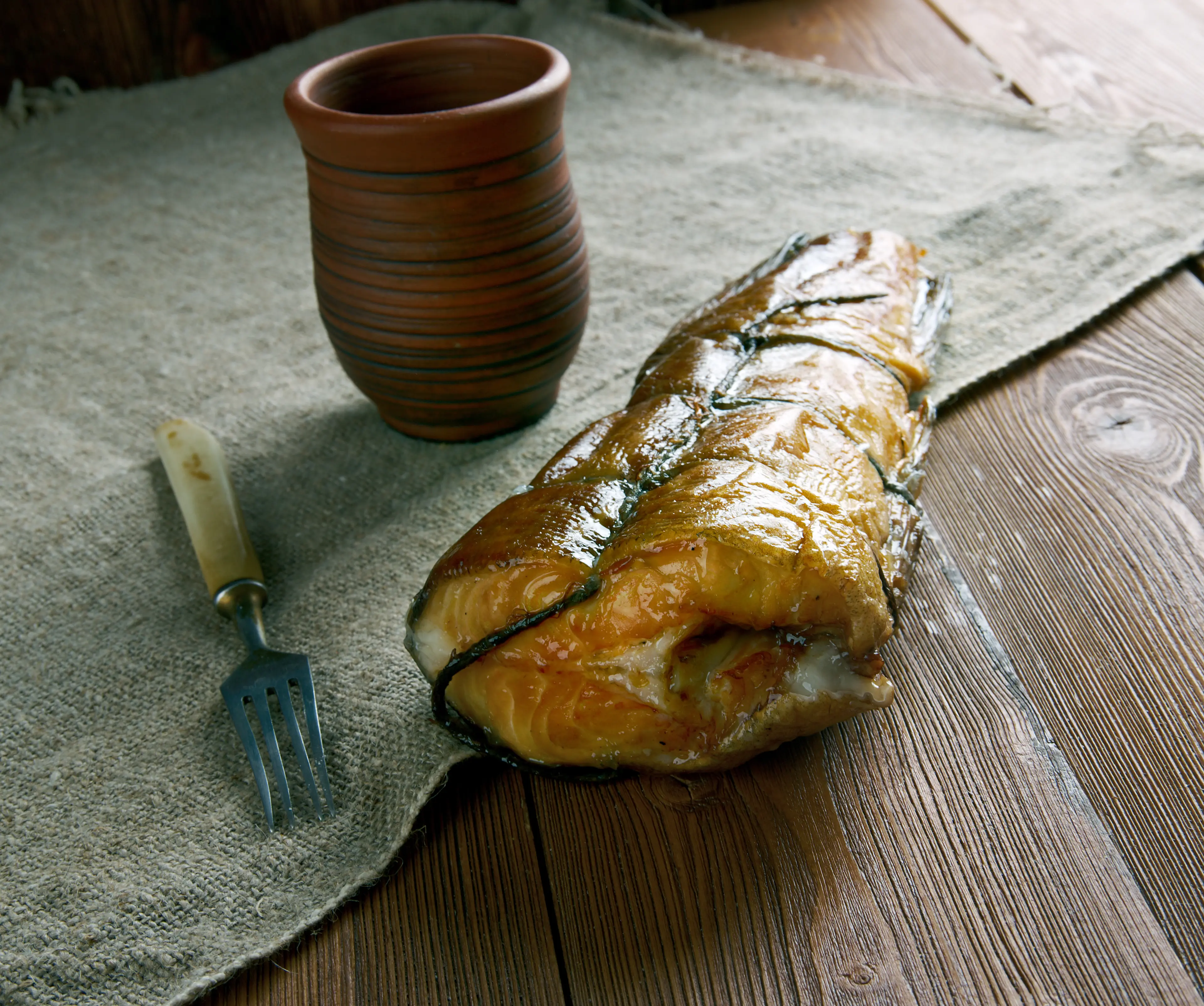
Arbroath Smokie
Arbroath Smokie is a type of smoked haddock – a speciality of the town of Arbroath in Angus, Scotland. The fish are first salted overnight, then left to dry. They are then hung in pairs over a triangular length of wood to smoke.

Scotch Whisky
Scotch Whisky, often simply called Scotch, is malt whisky or grain whisky made in Scotland. It is one of the most popular drinks in Scotland and is known for its distinct, robust flavour.
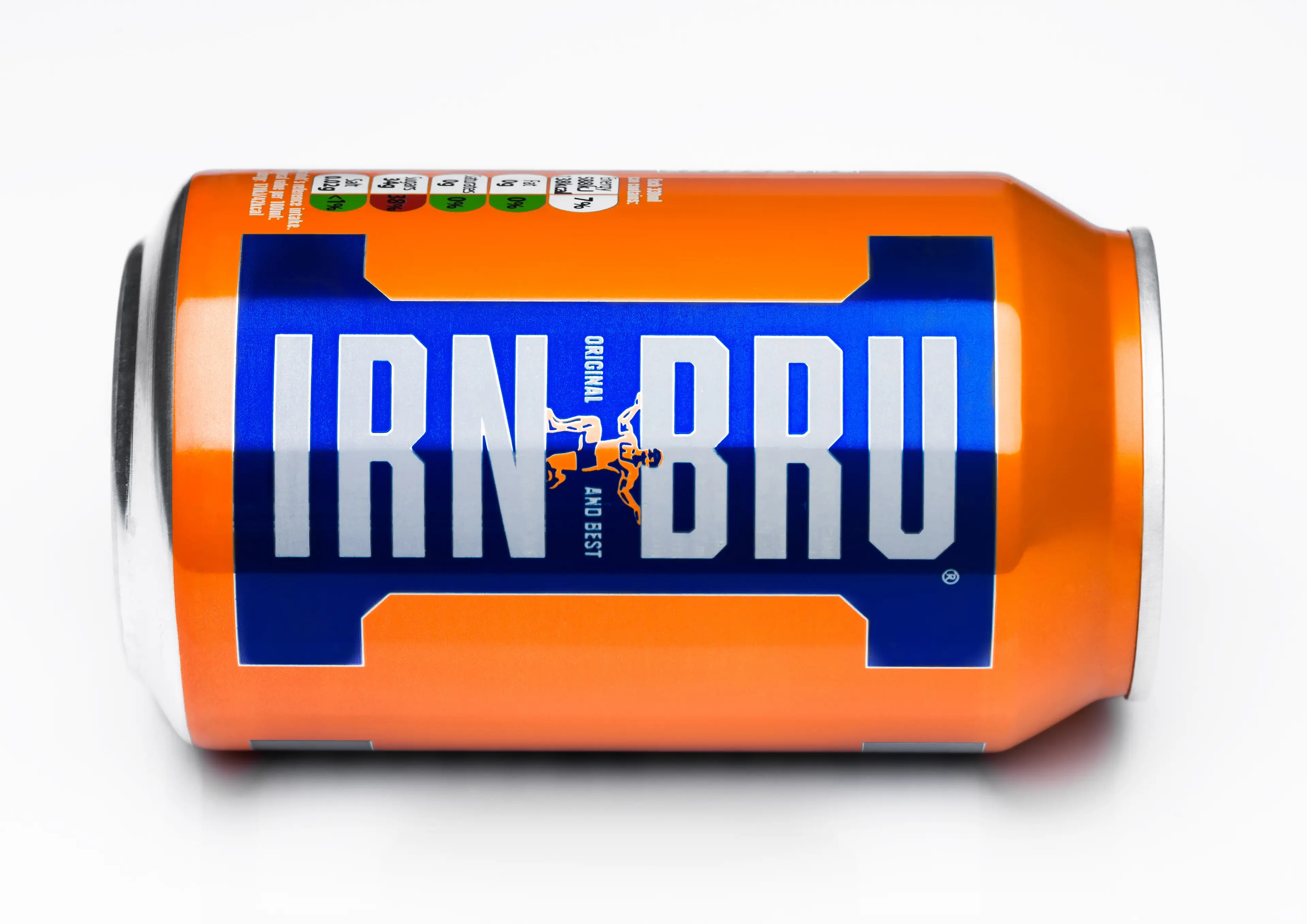
Irn-Bru
Irn-Bru is a Scottish carbonated soft drink, often described as 'Scotland's other national drink' (after whisky). It is orange in colour, with a unique flavour that is difficult to describe.
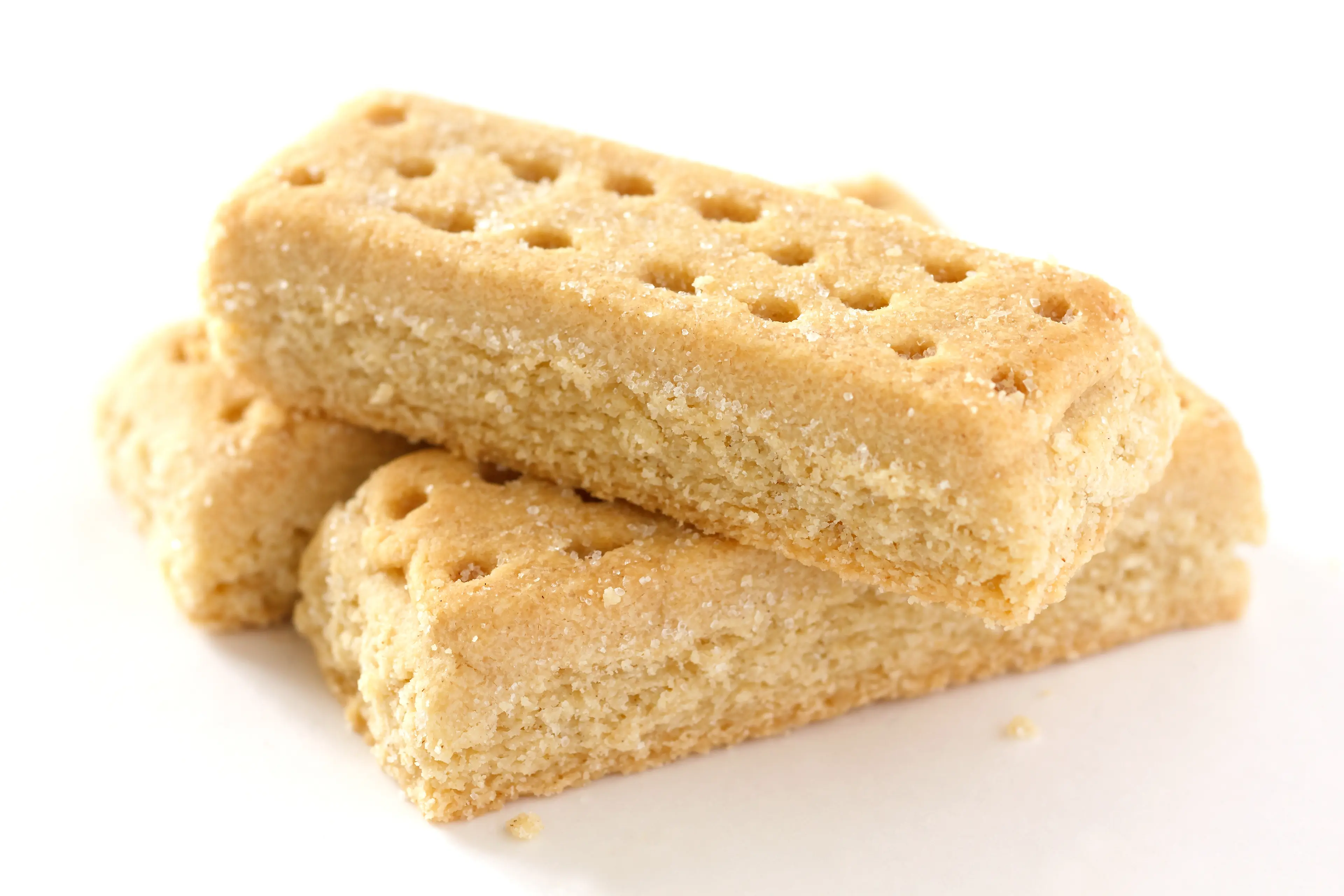
Shortbread
Shortbread is a traditional Scottish biscuit usually made from one part white sugar, two parts butter, and three parts plain wheat flour. It is often associated with Christmas and Hogmanay festivities in Scotland.
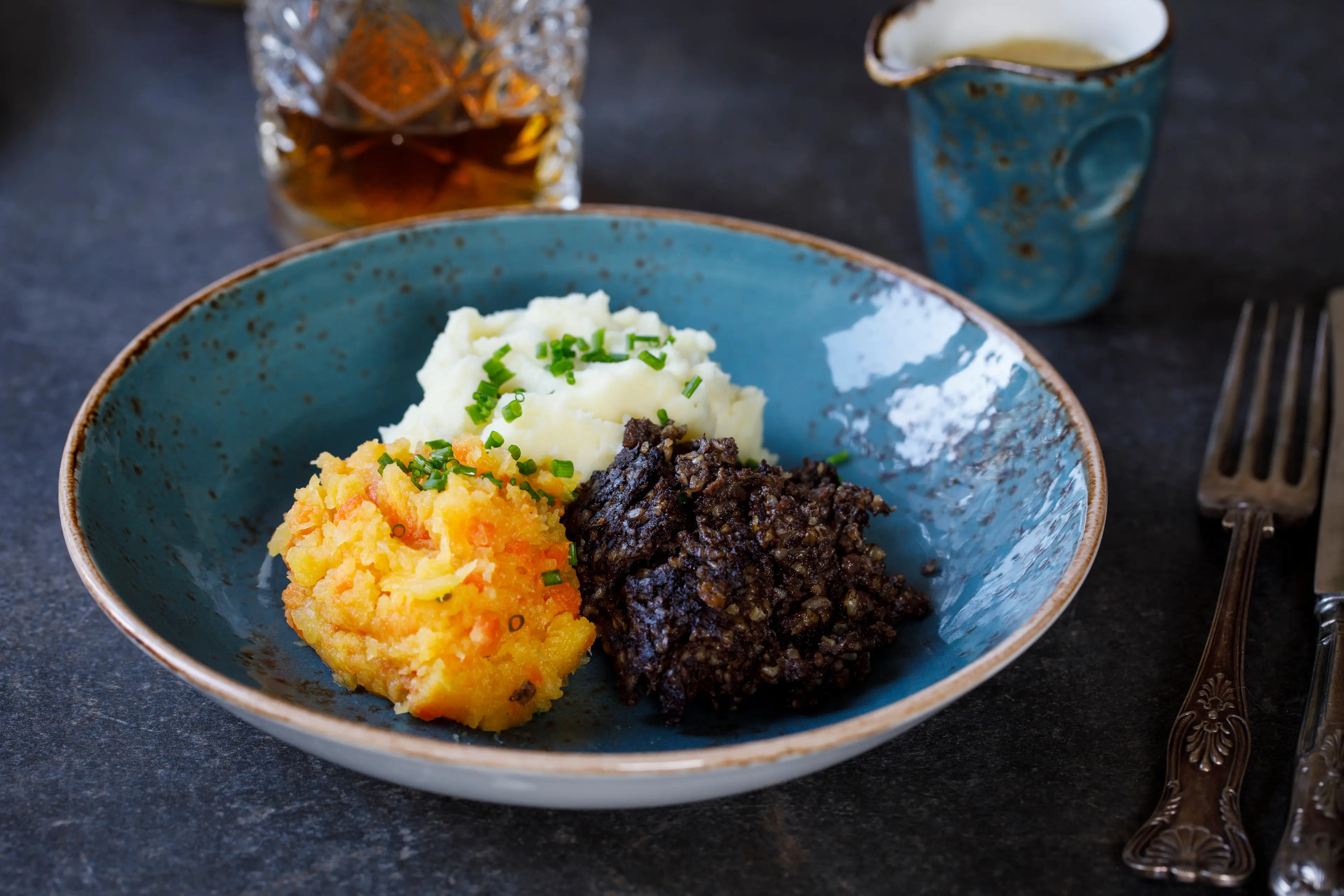
Neeps and Tatties
Neeps and Tatties are the traditional accompaniment to haggis, particularly on Burns Night. 'Neeps' is a Scottish term for swede, or rutabaga, and 'tatties' is a familiar term for potatoes.
Best time to visit
The best time to visit Edinburgh, Scotland as a tourist is during the summer months, from June to August. This period offers the warmest weather and longest daylight hours. It's also when the city comes alive with several high-profile festivals including the Edinburgh International Festival and the Edinburgh Festival Fringe, the world's largest arts festival. However, it's also the busiest time, so booking in advance is recommended. If you prefer a quieter time, consider visiting in the spring (April to June) or fall (September to November) when the city is less crowded but still offers pleasant weather.
How to get around
Walk
Edinburgh is a compact city, making it easy to get around on foot. Many of the city's main attractions, such as the Royal Mile, Edinburgh Castle, and the Scottish National Gallery, are within walking distance of each other.
Bus
Edinburgh has an extensive bus network, operated by Lothian Buses. Buses run regularly throughout the city and surrounding areas. There are also night buses available.
Tram
Edinburgh's tram system runs from the city centre to Edinburgh Airport. The trams are a convenient way to travel, especially if you're carrying heavy luggage.
Bicycle
Edinburgh is a bike-friendly city with many cycle paths and bike hire schemes available. Just Eat Cycles offers bike hire stations across the city.
Taxi
Taxis are readily available throughout Edinburgh. They can be hailed on the street, booked by phone, or picked up from a taxi rank.
Rideshare
Ridesharing services, such as Uber, are available in Edinburgh. This can be a convenient option for getting around, especially if you're travelling in a group or have a lot of luggage.
Train
Edinburgh has two main train stations - Waverley and Haymarket. Trains are a quick and convenient way to travel to other cities in Scotland, such as Glasgow or Aberdeen.
Car Hire
Car hire is available from various companies in Edinburgh. However, due to the city's compact size and excellent public transport, it's often easier to get around without a car.
Tour Bus
Hop-on hop-off tour buses are a popular way to see the city's main sights. These buses follow a set route and you can get on and off as many times as you like throughout the day.
Important information
Currency£ GBP
Time zoneUTC 0
Driving sideLeft
Emergency phone112, 999
Drinking waterYes
Power sockets
Voltage230 V
Things to know about Edinburgh, Scotland as a first time visitor
1
Edinburgh is the capital city of Scotland and one of its 32 council areas.
2
The city is known for its stunning scenery and historical sites, making it a popular destination for tourists.
3
The local currency is the British Pound (£). Credit cards are widely accepted, but it's always handy to have some cash.
4
Edinburgh has a temperate maritime climate, which means it can be quite changeable. Always pack for all weather conditions.
5
The average summer temperature is around 66°F (19°C), while in winter it can drop to around 34°F (1°C).
6
The city is quite walkable, but it also has an excellent public transport system, including buses and trams.
7
Taxis are plentiful but can be expensive. Consider using Uber or a local taxi app for better rates.
8
Edinburgh is a safe city, but like any major city, it's important to stay aware of your surroundings, especially at night.
9
The legal drinking age in Scotland is 18. It's common for pubs to ask for ID, so carry a passport or driver's license if you plan to drink.
10
Tipping is customary in Edinburgh. A 10-15% tip is standard in restaurants, and it's polite to tip taxi drivers and hotel staff.
11
Scotland's national dish is haggis, a type of pudding composed of liver, heart, and lungs, minced with onion, oatmeal, suet, spices, and salt. It's worth trying when in Edinburgh.
12
Edinburgh is known for its festivals, the most famous of which is the Edinburgh Festival Fringe, the world's largest arts festival.
13
The city is built on seven hills, similar to Rome, so be prepared for some steep walks.
14
The official language is English, but you may hear some Scots and Gaelic, especially in the more rural areas.
15
Scotland uses the Type G plug. The standard voltage is 230 V, and the standard frequency is 50 Hz.
16
Edinburgh has a rich literary history and is the first UNESCO City of Literature. It's a great city for book lovers.
17
The city is also known for its whisky. Consider visiting a whisky distillery or tasting session.
18
Edinburgh has a vibrant nightlife, with plenty of pubs, clubs, and live music venues.
19
The city is also a great base for exploring the rest of Scotland, with excellent train and bus connections.
20
Lastly, remember to respect the local customs and traditions. Scots are known for their friendliness and hospitality, so don't hesitate to ask for help or directions.
Packing List
Clothing
Underwear (3 pairs)
Socks (3 pairs)
T-shirts (3)
Long-sleeve shirts (2)
Jeans or trousers (2 pairs)
Comfortable walking shoes
Lightweight jacket
Raincoat or umbrella
Pajamas
Scarf, gloves and hat (depending on the season)
Toiletries
Toothbrush and toothpaste
Deodorant
Shampoo and conditioner
Body wash or soap
Razor and shaving cream
Hairbrush or comb
Makeup and makeup remover (if applicable)
Prescription medications
First aid kit (band-aids, antiseptic wipes, tweezers)
Travel documents and essentials
Passport
Driver's license or ID card
Credit and debit cards
Cash and coins in local currency
Hotel and/or car rental reservations
Travel insurance documents
Emergency contacts and important addresses
Electronics and gadgets
Smartphone
Charger for smartphone
Universal power adapter
Camera and charger
Headphones
Portable power bank
Miscellaneous items
Snacks and water bottle
Books or e-reader for the flight
Travel pillow and blanket
Earplugs and eye mask
Travel guide and map
Reusable shopping bag
Laundry bag
Weather Conditions
Edinburgh, Scotland is known for its unpredictable weather. It's often said that you can experience all four seasons in one day here, so it's best to come prepared for a variety of conditions. The city's climate is generally temperate, which means it doesn't experience extreme temperatures. However, it can get quite chilly, especially in the winter months (December to February), when temperatures can drop to around 34°F (1°C). On the other hand, the summer months (June to August) are relatively mild, with temperatures typically reaching up to 66°F (19°C). Rain is a common occurrence in Edinburgh, so it's a good idea to always carry an umbrella or raincoat. The city gets the most rainfall during the winter months, but showers can happen at any time of the year. Wind is another factor to consider when visiting Edinburgh. The city can be quite breezy, especially in the more exposed, hilly areas. If you're planning on visiting any of the city's many beautiful viewpoints, it's a good idea to bring a windbreaker or a heavy coat. Despite the unpredictable weather, Edinburgh's beauty shines through in any condition. The city's historic architecture looks even more dramatic under a brooding, cloudy sky, and a bit of rain can make the city's many parks and gardens look even more lush and vibrant. In conclusion, when packing for a trip to Edinburgh, it's best to prepare for a bit of everything: bring warm clothing for the chilly days and nights, waterproof gear for the frequent rain, and don't forget your windbreaker for the breezy hilltops. And remember, the weather can change quickly, so always check the forecast before heading out for the day.
| Month | Hi / Lo (°C) | Weather Overview |
|---|---|---|
January | 7° / 1° | January is the coldest month in Edinburgh, with temperatures often dropping below freezing. It's a great time to visit if you enjoy crisp, cold weather and fewer tourists. |
February | 8° / 1° | February is still quite cold, but you'll start to see a bit more sunshine. It's a good time to visit if you want to avoid the crowds and don't mind the chill. |
March | 12° / 2° | March sees the beginning of spring, with temperatures starting to rise. You can expect more daylight hours and the start of the blooming season. |
April | 14° / 4° | April is a pleasant month to visit, with mild temperatures and longer daylight hours. The city starts to come alive with spring blooms and outdoor activities. |
May | 18° / 6° | May is a beautiful month to visit Edinburgh, with warm temperatures and lots of sunshine. The city's parks and gardens are in full bloom, making it a great time for outdoor exploration. |
June | 20° / 9° | June marks the start of summer, with long daylight hours and warm temperatures. It's a great time to visit if you enjoy outdoor activities and festivals. |
July | 22° / 11° | July is the warmest month in Edinburgh, with plenty of sunshine and warm temperatures. It's a great time to explore the city's many outdoor attractions and enjoy the summer festivals. |
August | 21° / 11° | August is a busy month in Edinburgh, with the famous Edinburgh Festival Fringe taking place. The weather is warm and pleasant, making it a great time to explore the city. |
September | 19° / 9° | September sees the start of autumn, with cooler temperatures and changing foliage. It's a quieter time to visit, with fewer tourists and beautiful autumnal scenery. |
October | 14° / 6° | October is a cool and crisp month, with beautiful autumn colours. It's a great time to visit if you enjoy cooler weather and stunning natural beauty. |
November | 11° / 3° | November is a chilly month, with shorter daylight hours and the start of the winter season. It's a quieter time to visit, with fewer tourists and a peaceful atmosphere. |
December | 7° / 1° | December is a festive month in Edinburgh, with Christmas markets and festive lights. The weather is cold, but the festive atmosphere makes it a magical time to visit. |
Did you know?
Places near by Edinburgh, Scotland

Stirling Castle
One of the largest and most important castles in Scotland, both historically and architecturally.

Falkirk Wheel
A unique and ingenious feat of engineering, this rotating boat lift connects the Forth and Clyde Canal with the Union Canal.

Loch Lomond
The largest lake in Great Britain by surface area, offering stunning landscapes and outdoor activities.

Rosslyn Chapel
A 15th-century chapel featuring intricate carvings and a rich history, made famous by the Da Vinci Code.

St Andrews
Known worldwide as the 'home of golf'. This picturesque town also boasts Scotland's oldest university.

North Berwick
A charming seaside town with beautiful beaches and the Scottish Seabird Centre.

Dunfermline Abbey
An impressive and historic abbey in the heart of Dunfermline.

Melrose Abbey
A partly ruined monastery of the Cistercian order in Melrose.

Isle of May
An island reserve home to puffins, seals, and other wildlife. Accessible by boat trips from Anstruther.

Glentress Forest
A mountain biking mecca deep in the heart of the stunning Tweed Valley.

